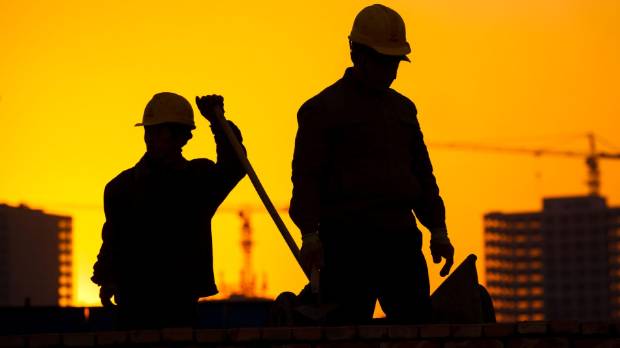 Texas Gov. Greg Abbott recently issued an order identifying industries considered essential during this pandemic. I was pleased that he included construction on the list.
Texas Gov. Greg Abbott recently issued an order identifying industries considered essential during this pandemic. I was pleased that he included construction on the list.
Construction has been my career and my passion for my entire life. My father and uncles — descendants of Czech immigrants — founded our company more than 80 years ago. Since then, we have participated in projects big and small all over Texas and across much of the country. We have recruited and trained thousands of workers, helping them build careers that enabled them to provide for their families. Schools, churches, office buildings, hospitals — construction is indeed essential, and so are its workers.
Some bristle at labeling construction workers as essential because many of them are undocumented. With Houston’s undocumented population running between 600,000 and 700,000, it’s likely that trades like construction, landscaping, elder care, utility work, highway work, farm workers, and others, have workers who are both essential and undocumented.
This hidden workforce of the undocumented didn’t just show up. Research shows that most undocumented have been in the country for more than a decade — and some, far longer. In the past 20 years, the flow of workers from our southern border has slowed dramatically because of increased enforcement. Our immigrant population, both legal and undocumented, is declining every year.
So what do we do with an undocumented population in Texas that surpasses 2.5 million? How many of them are essential workers? Our undocumented population is second in size only to California in numbers. While California has struggled to address the undocumented, too, and has implemented many failed and unpopular policies, it does have a few programs that make sense. For example, it allows the undocumented to apply for drivers’ licenses. That enables them to travel and go to where their labor is needed most, but it also allows the state to know who they are. While a similar measure has been proposed in Texas, by former Republican Rep. Byron Cook, the Legislature hasn’t passed it.
Mobility for essential workers will become more critical as we attempt to rebuild our economy. Those of us who lived through Hurricane Harvey should remember who participated in the cleanup and rebuild of our city — mucking out houses, tearing out wet sheetrock, hauling off trash, and other “dirty jobs” that no one else wanted to do. Where would we have been without these essential workers?
Now more than ever we must get serious about building a resilient workforce for the next disaster. Ignoring the fact that we have hundreds of thousands of workers in the shadows that we are relying on in time of crisis makes no sense.
I have long advocated for a system that identifies and taxes the undocumented who have been in our country for an extended period of time. I’ve proposed offering them legal status — not citizenship — if they can pass a background check. As part of their status, they would apply to work for an employer who pays and matches payroll taxes. These are the same requirements for workers who come here on visas. Doesn’t it make more sense to keep the workers who are already here and who have developed the skills that are vital to our economy before we import more?
The government already has a program similar in structure to my “ID and Tax” plan. It’s called DACA. Almost 1 million individuals who registered for DACA are living in the country and working with a permit. They are contributing billions of dollars to the economy and hold many the essential jobs essential to fighting this pandemic. Hopefully, we will allow them to stay without the threat of deportation.
It’s time for our president and Congress to extend this same opportunity to those of the 11 million undocumented already in our country who can pass a background check and agree to pay taxes. Realistically speaking, we can’t deport them all, especially when they have been deemed essential.
The time is now. Let’s call our elected officials and demand action.

